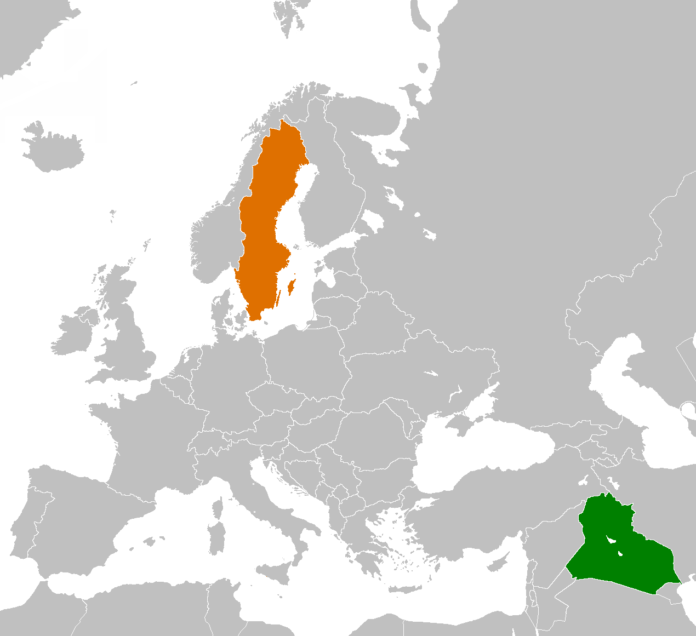This past Wednesday (7/19/21) hundreds of demonstrators stormed the Swedish embassy main gates in Baghdad, Iraq. The unrest was triggered when police in Stockholm sanctioned another plan of burning the Quran, the Muslim holy book. This incident has escalated tensions between Iraq and Sweden and has drawn international attention to the issues of freedom of expression, religious sensitivity, and diplomatic relations.
Videos shared on social media showcased a large group of protesters within the perimeter of the Swedish embassy, accompanied by black smoke and flames engulfing the building. Iraqi security forces used water cannons and electric batons to disperse the protestors and extinguish the fire.
Amid the chaos, three photojournalists while covering the demonstrations were arrested, while another journalist faced physical violence and the destruction of his camera. Eyewitnesses stated that the protesters from the embassy perimeter withdrew after setting a part of it on fire, expressing their strong opposition to the burning of the Holy Book.
The root cause of this upheaval traces back to a previous incident in Stockholm when an Iraqi national, Salwan Momika, burned a Quran( Holy Book) outside a mosque during Eid-al-Adha, the Muslim holiday. This provocative act generated outrage in Iraq and worldwide.
The situation escalated further as the Iraqi government condemned the attack on the Swedish embassy, categorizing it as part of a concerning pattern of assaults on diplomatic missions. Baghdad went on to expel Sweden’s ambassador and recalled its top diplomatic representative from Sweden.
The Swedish police’s decision to grant a permit for a gathering that could potentially involve burning the Quran in public added fuel to the fire. Both Swedish authorities and Iraqi exchanged heated words, with Baghdad threatening to sever diplomatic ties with Stockholm over the Holy Book burning demonstration.
In response to the escalating tensions, the Iraqi government held an emergency meeting to address the issue. They vowed to turn over the arrested individuals to the judiciary and investigate any security officials deemed negligent during the incident. This step ensured appropriate legal measures were taken against those responsible for the unrest.
The storming of the Swedish embassy in Baghdad serves as a stark reminder of the complexities surrounding freedom of expression and religious sensitivities. The incident has raised questions about the responsible handling of public gatherings and the potential consequences of inflammatory actions.
While countries must uphold freedom of expression, they also bear the responsibility of protecting diplomatic missions and respecting each other’s beliefs. This unfortunate event highlights the need for open dialogue, respect, and tolerance between nations with differing cultural and religious backgrounds.










